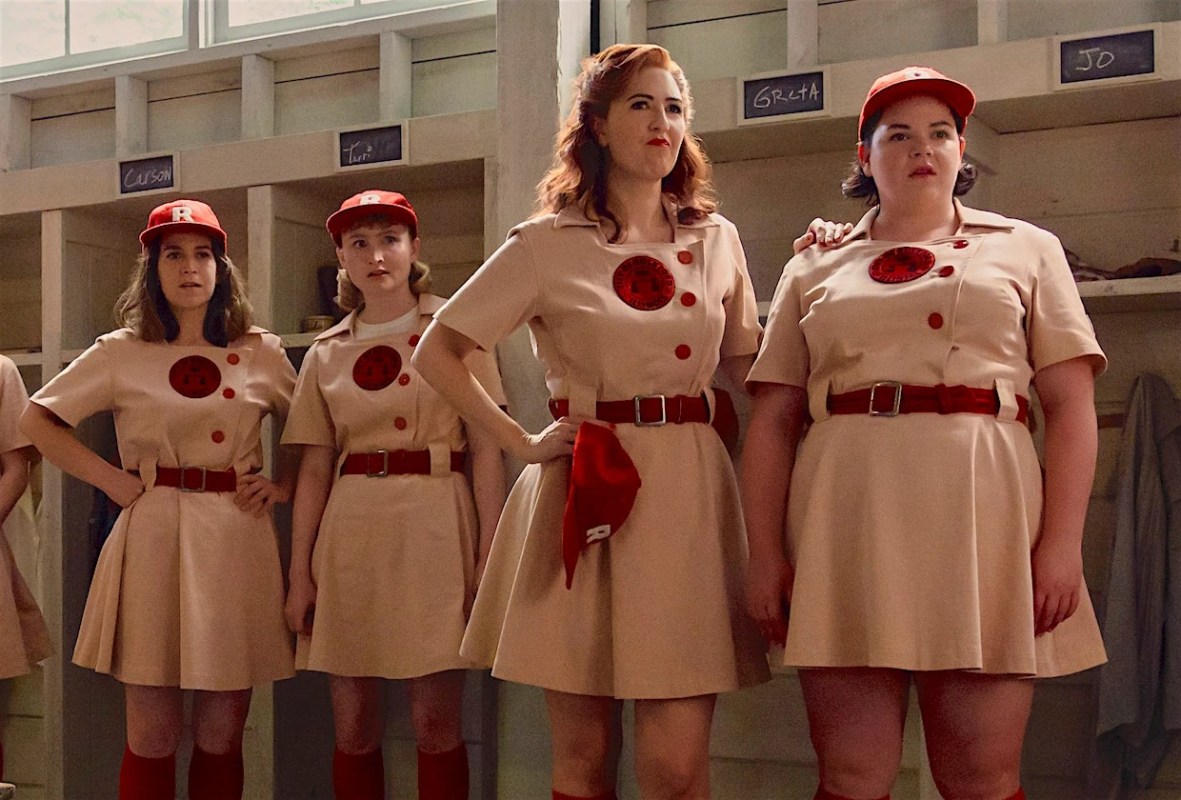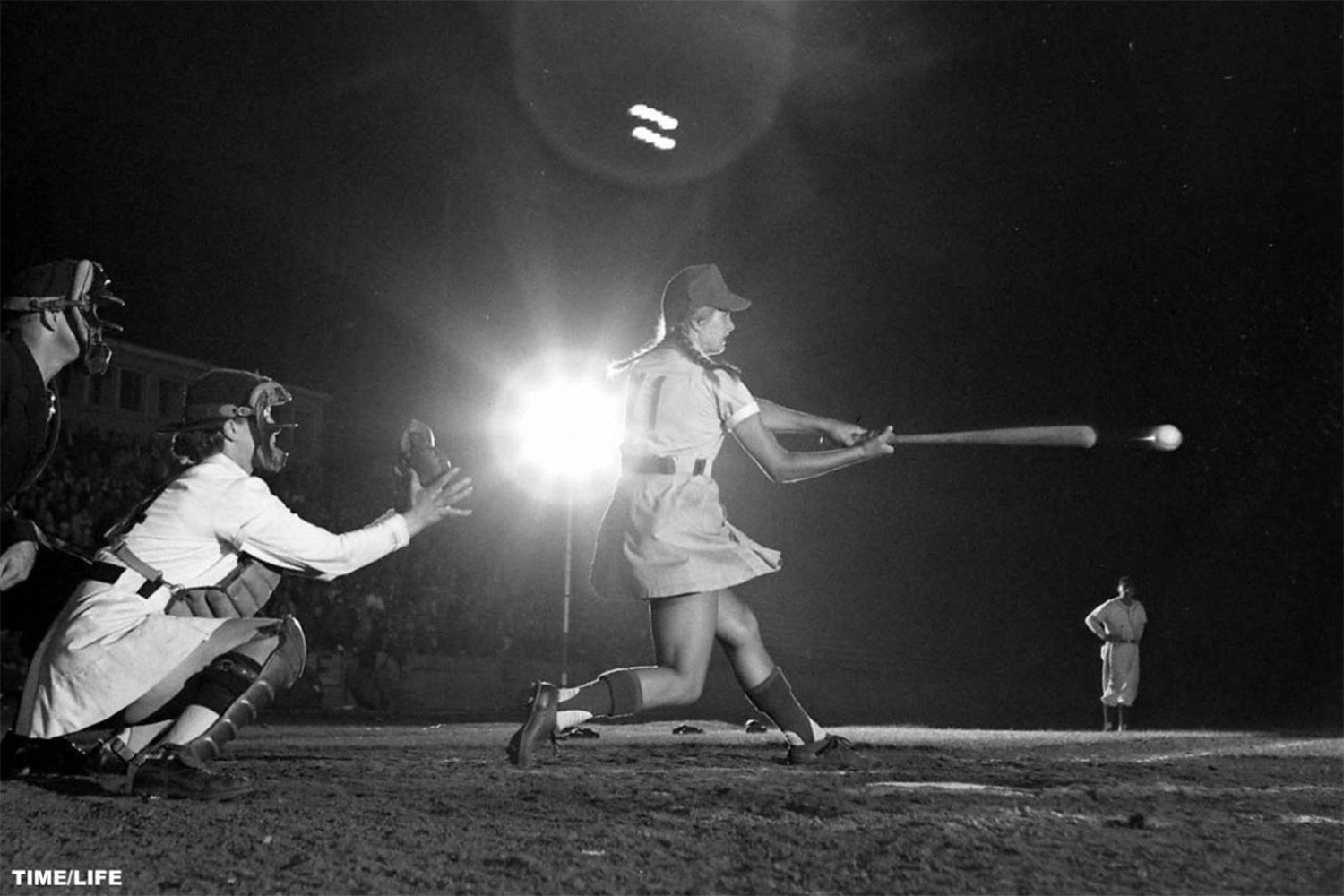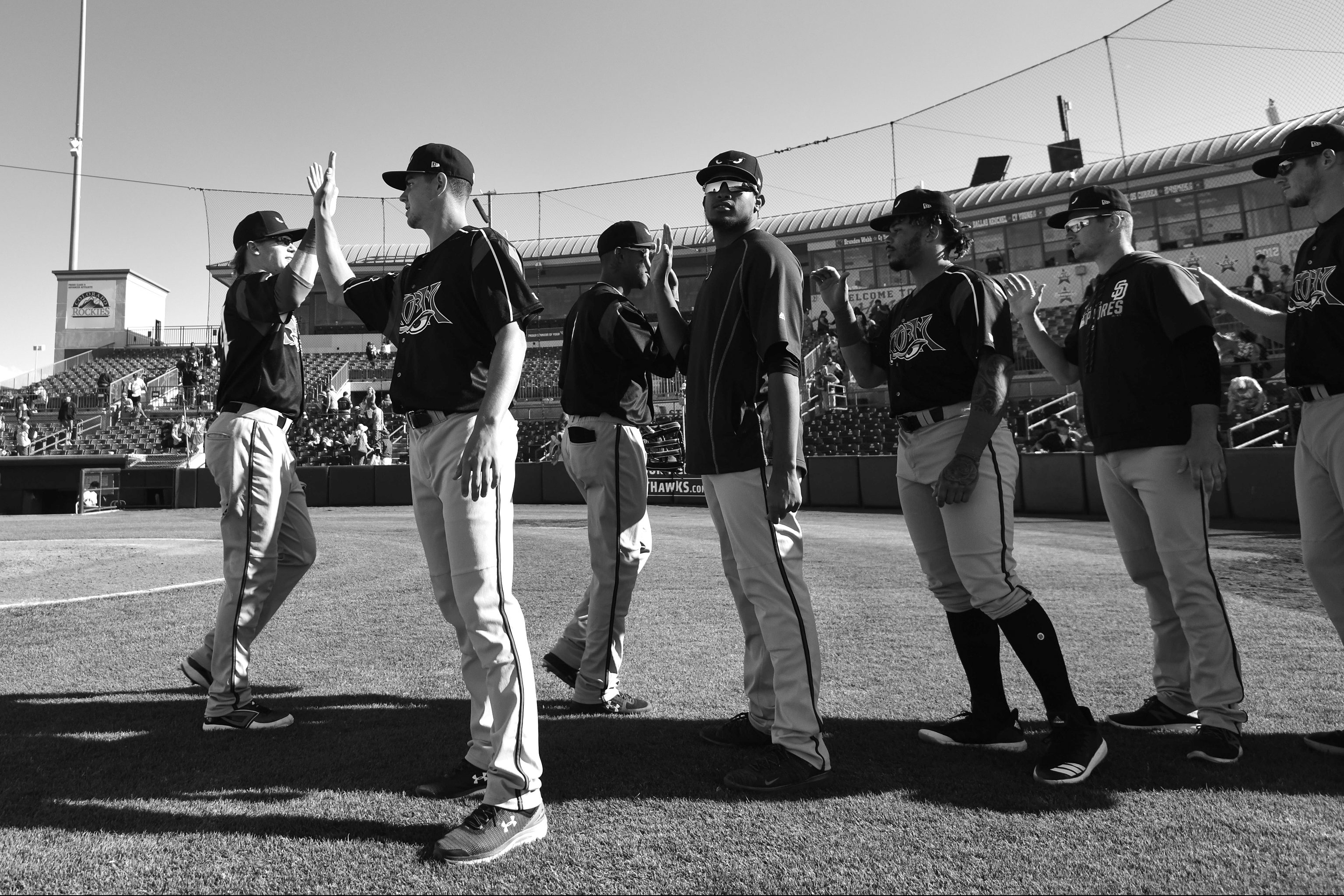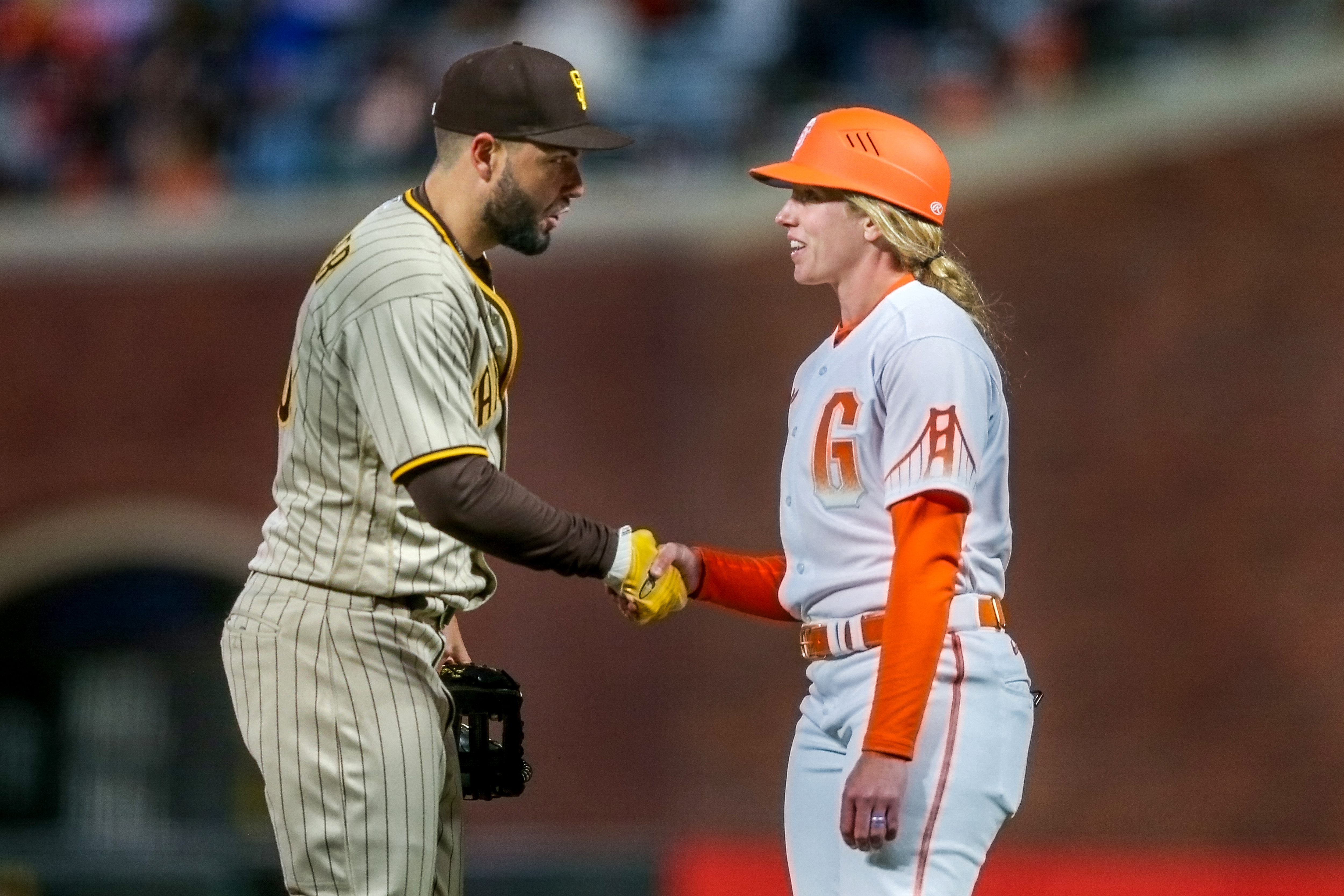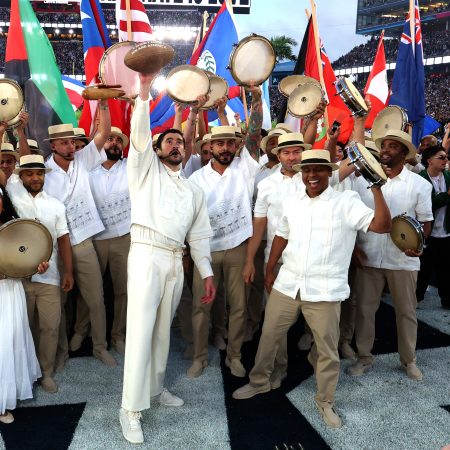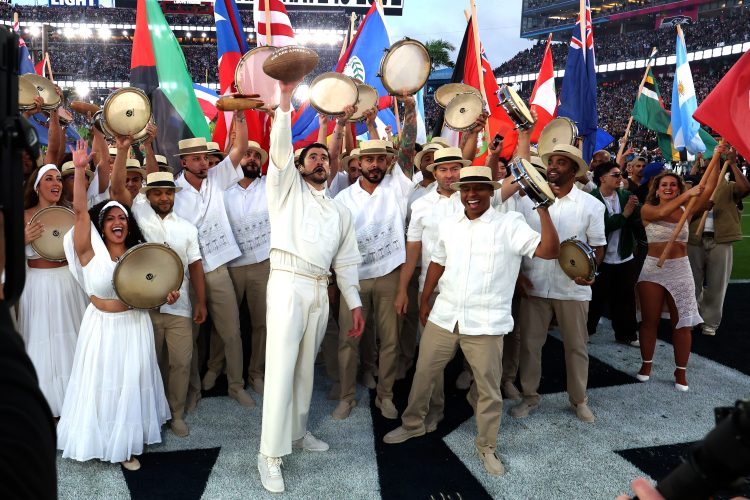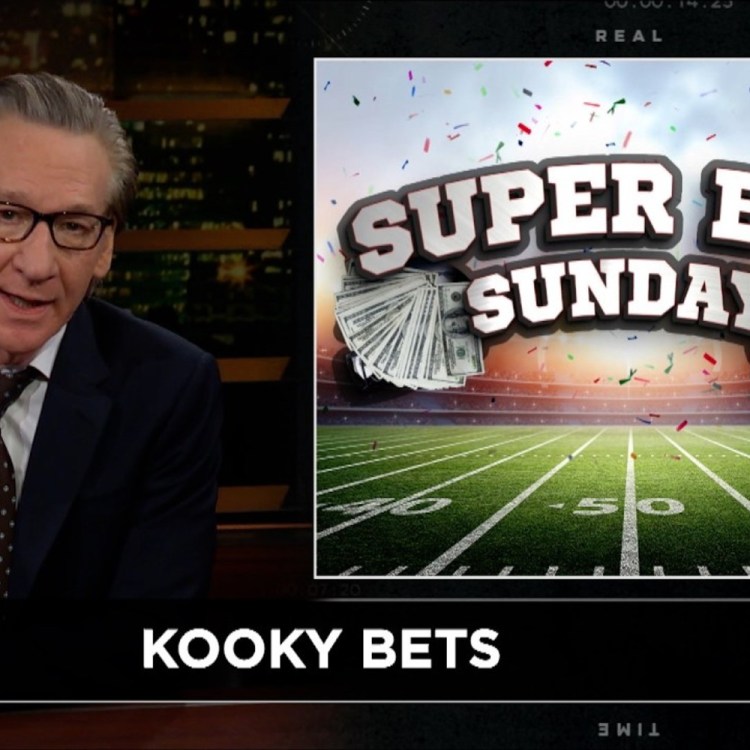For just about as long as it has existed, America has claimed to love underdogs. That, presumably, largely has to do with the scrappy band of revolutionaries who sailed across an ocean and then took on an empire in order to found this country. We’re conditioned to root for the Davids over the Goliaths; that Jay Gatsby-style rags-to-riches trajectory is so inherent to our national identity that we’ve dubbed it the American Dream. But for all that posturing, America has never really concerned itself with the true underdogs — the ones who for many years couldn’t vote or open a bank account or drink from the same water fountains as everyone else or publicly display affection with their significant other without fear of scorn or violence. In fact, it did (and continues to do) everything in its power to hold those folks down.
Perhaps that’s why Amazon’s A League of Their Own reboot feels long overdue. The 1992 original is a classic — so beloved that to this day, you can walk down the street and shriek “There’s no crying in baseball” at a stranger and chances are they’ll get the reference. Generally, we consider movies as iconic as these to be impossible to successfully remake; there’s no way a new version could possibly compare with the original. But while the Penny Marshall film about the members of the WWII-era All-American Girls Professional Baseball League is undeniably great — arguably as great as it could have been while still being allowed to see the light of day in the era during which it was released — it is not beyond reproach. It’s a heartwarming tale about a determined band of misfits, but it’s just as notable for who we don’t see. The Rockford Peaches are overwhelmingly white and overwhelmingly straight. The only Black woman we see appears in a single, brief scene, expertly throwing the ball from the stands back to the field of play and then giving a knowing nod to Geena Davis’s Dottie, meant to remind us that, yes, Black female ballplayers existed, and, no, they were not allowed to play. Despite the fact that historically speaking, a significant percentage of women pro athletes have been queer, even the most butch Peaches wind up paired off with men by the end. (Real-life AAGPBL player Maybelle Blair, who recently came out as gay at the age of 95, estimated that two-thirds of the women in the league were members of the LGBTQ+ community.)
The Prime Video reboot, however — an eight-episode series written, produced and starring Broad City‘s Abbi Jacobson — intentionally bears little-to-no resemblance to the original. It features an entirely new set of characters and an entirely new story, and inclusivity is the name of the game. There are similarities with and allusions to the original, of course. At one point a character utters “There’s no crying in baseball,” there’s a former MLB star serving as absentee manager of the Rockford Peaches (though unlike Tom Hanks’s character Jimmy Dugan, Nick Offerman’s Dove Porter only lasts three episodes before eventually ditching the team and totally handing over the reins to Jacobson’s Carson Shaw), and Rosie O’Donnell makes a cameo appearance. There are also some clever nods to other iconic baseball films; at one point, in what feels like a pointed Field of Dreams reference, two characters debate whether it’s “have a catch” or “play catch.” But beyond that, the series sets out to do what its predecessor couldn’t by focusing primarily on queer and BIPOC characters.
There’s Shaw (Jacobson), the team’s catcher/manager who falls hard for her teammate Greta (D’Arcy Carden) and explores her sexuality while her husband is away at war. On the other side of things is Max (Chanté Adams), a massively talented Black pitcher fighting for a chance to throw for a team. (Naturally, she’s not even allowed to try out for the Peaches, let alone play for them, so she spends much of the series trying unsuccessfully to convince an all-male rec league team of local factory workers to let her join them.) Outside of baseball, she bonds with her Uncle Bertie, a trans man who has been shunned by the rest of their family for daring to be his authentic self, and begins experimenting with her own gender expression. Though Black women were still barred from the AAGPBL, these Rockford Peaches are a little more diverse — there are two Latina players, a Jewish outfielder (played by the hilarious Kate Berlant, who steals every scene she’s in) and several other lesbians who are living as close to openly as they could in the ’40s without getting booted from the league.
The show goes out of its way to address the racism, homophobia and, of course, sexism that these women encountered on a daily basis, and in many ways it feels like a welcome course-correction from the original. The show is realistic, avoiding any fantasy wish-fulfillment, Disney version where Max, for example, would be accepted as the extremely skilled pitcher she is rather than being relegated to touring with a Harlem Globetrotters-esque exhibition team as a novelty act. The show goes out of its way to highlight the existence and importance of underground queer spaces like the gay bar owned by O’Donnell’s character Vi or the parties hosted by Bertie and his partner, but they don’t sugarcoat the fact that it was dangerous for the people who frequent them to attend. (In one memorable scene, the bar is raided by police, and Jo — the Peaches’ star hitter — is arrested and promptly traded to another team.) The new A League of Their Own recognizes that the underdogs don’t always walk away with the victory.
That’s not to say, of course, that the original didn’t also understand this to a certain degree. Fans have spent decades debating whether the Peaches’ infamous loss at the end of the movie was the result of Dottie dropping the ball or intentionally letting it go to allow her kid sister Kit to win the game. It’s a bittersweet moment, and whatever camp you fall into, it’s clear that Kit wanted it more than Dottie, who ultimately decides to give up her career as a ballplayer to become a homemaker. The Amazon series alters that element drastically; Carson ponders leaving her husband for Greta and ultimately informs him that she fully intends to return for a second season in the league. And while the movie’s climax quite literally pits the women against each other, with the two sisters colliding with one another at the plate, there’s a pivotal moment in the show’s final episode (which we won’t spoil here with any specifics) that involves women on opposing teams rallying around each other — something we rarely get to see onscreen. All of this makes A League of Their Own the rare reboot that’s actually worth watching; it dares to differ from its source material in nearly every way, offering up an inclusive update to an enduring classic, a true underdog story.
This article appeared in an InsideHook newsletter. Sign up for free to get more on travel, wellness, style, drinking, and culture.
